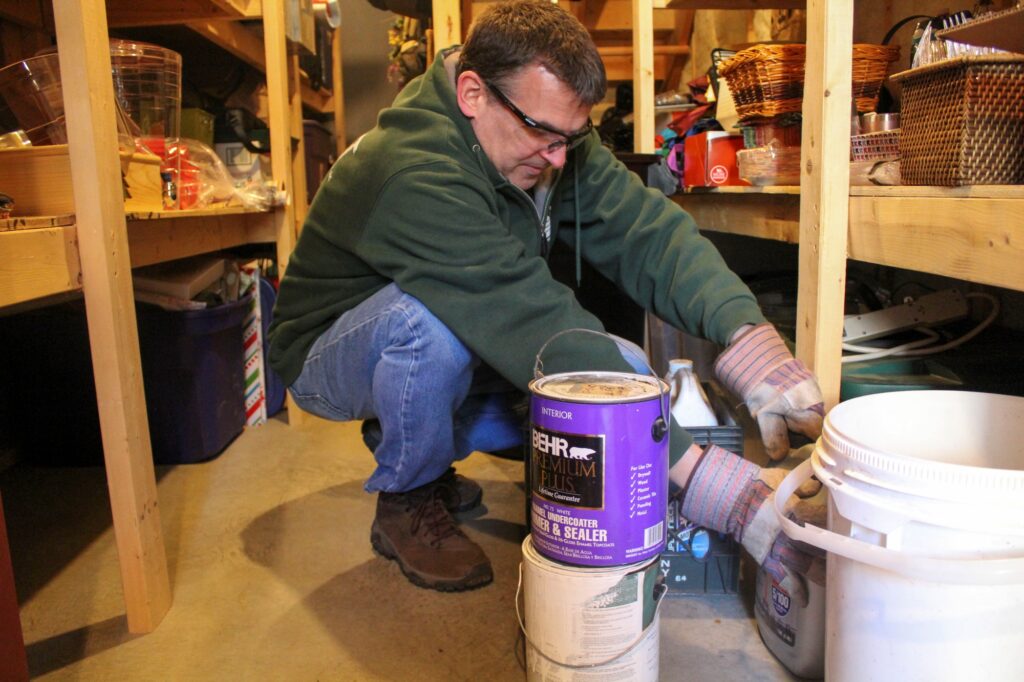As temperatures plunge in New England, we’re usually more focused on waterlines and plants than on which household hazardous products freeze in unheated parts of our homes. But there are certain products that many homeowners have sitting at home that can be damaged or pose a risk during use or storage if they drop below freezing. Today, we’re going to look at specific products and general guidelines for storing hazardous products during the winter.
Examples of Freezing Products Risks
Depending on where your store household products and what parts of your home drop below freezing during the winter, different products are at risk. Below are three common products damaged during freezing.
Latex Paint
Latex paint is an emulsion of solids and liquids. Unlike oil-based paints, latex paint uses water as its liquid. While oil won’t freeze at standard New England winter temperatures, water certainly will. This can cause the emulsion to break, releasing the solids from the solution. This causes paint to change consistency, forming lumps (somewhat resembling cottage cheese). Note that some paints can survive this process once, especially in a short freeze, but repeated freezing will render them unusable.
Car Batteries
Car batteries are a combination of chemicals and metals that react to store and transfer electricity. Almost all typical car batteries are lead-acid batteries, with alternating lead and other metal plates, and are filled with an electrolyte solution containing sulfuric acid. Not only are these products hazardous, requiring special disposal, but during cold temperatures, they function less efficiently, losing up to 60% of their strength in freezing conditions. This means power-hungry devices can quickly drain them.
Fuels with Water Content
Most modern liquid fuels contain some water, usually ethanol added to gasoline or biodiesel. While usually not enough to pose a risk, large amounts of water (especially with improperly stored fuels), when freezing, can choke engines as ice fills up the fuel intake filters. You may want to use up gasoline and diesel products before winter instead of storing them, especially since these products can go bad after several months of storage.
Prevention: Reading the Labels & Storing Properly
One of the easiest ways to avoid issues with the above products and any other products that might be damaged by water or other issues is to read the labels before storage. Typically, these labels not only point out hazards but also provide instructions on use and storage, including temperature ranges. Just as some products need to be stored above minimum temperatures to avoid damage, other products will need to be stored below certain temperatures to avoid a risk of fire.
Here at NEDT, we offer hazardous household product disposal at any time of the year, regardless of municipal programs. Take advantage of our collection services (open five days a week) or our pick-up service to get hazardous waste out of your home, including unheated parts, before or during winter. Find the collection center nearest to you and plan out your trip. Have any questions about what products should be brought in? See what we accept or contact us today!




Leave a Reply